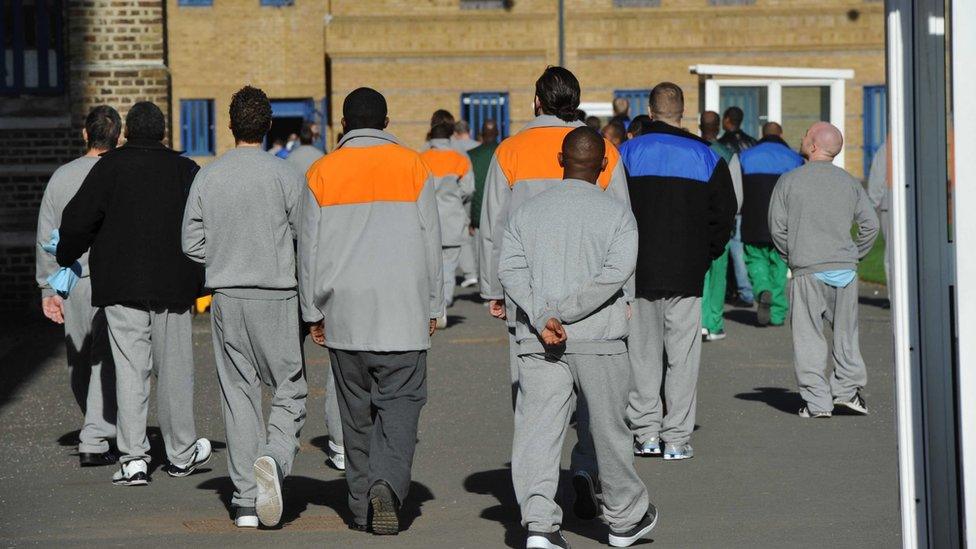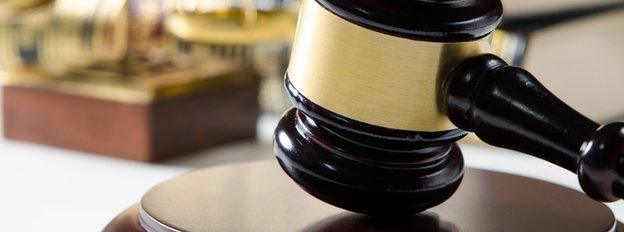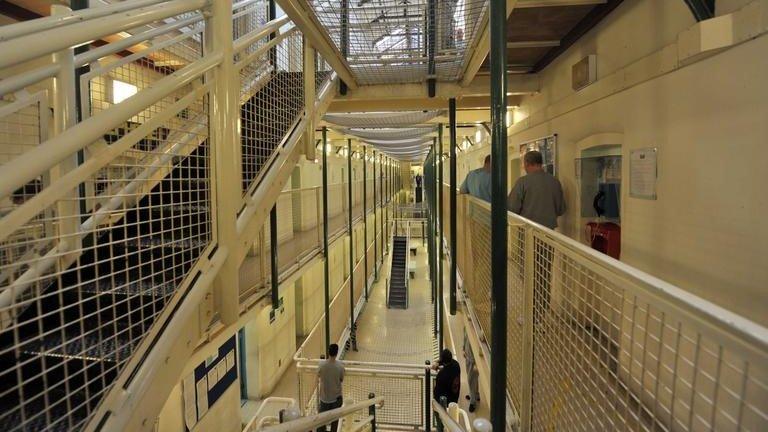UK prisoners 'could challenge blanket ban on voting'
- Published
- comments

UK prisoners could challenge the blanket ban on them voting in European elections after a European Court of Justice ruling, external on a case in France.
Convicted murderer Thierry Delvigne claimed a ban on him voting in European Parliament elections violated his civil and political rights.
But the court ruled the ban was "proportionate" to the offence.
The decision means some UK prisoners could make a challenge if a ban would not be proportionate in their case.
Delvigne was excluded from the electoral roll in France after being sentenced in 1988 to 12 years imprisonment, and an ancillary penalty of permanent deprivation of the right to vote.
He made his claim to the ECJ because he argued his rights were being infringed under the Charter of Fundamental Rights of the EU., external
The ruling said the "ban to which Mr Delvigne is subject is proportionate in so far as it takes into account the nature and gravity of the criminal offence committed and the duration of the penalty".
The court ruling means the EU Charter of Fundamental Rights applies to the rights of UK citizens - including prisoners - to vote in European Parliament elections.
If that right is taken away from someone, the ban has to be proportionate - as well as taking into account the nature and seriousness of the offence committed.
Government 'should take action'
BBC legal correspondent Clive Coleman said: "Unlike the French ban, triggered by sentences of five years or more, the UK has a blanket ban, no matter what the offence or sentence.
"This means that prisoners in the UK who are EU citizens, especially those serving shorter sentences, could now challenge the ban on them voting in elections to the European Parliament."
Sean Humber, solicitor at Leigh Day, said there would now be more pressure placed on the government to allow at least some prisoners to vote.
He added: "As a result of this judgment, it is likely that prisoners convicted of less serious offences will now be able to take legal action against the government for being denied the vote in the 2014 European elections.
"In addition, the government will inevitably leave itself open to legal action from prisoners facing the prospect of being unable to vote in the European elections in 2019 if it does not take action now."

What is the European Court of Justice?

It's the European Union's highest court. It rules on disputes over EU treaties and other EU legislation. Its decisions are binding on EU institutions and the 28 EU member states.
A member state may be taken to court for failing to meet its obligations under EU law. Big fines can be imposed for non-compliance with the court's rulings.
It is different from the ECHR which rules on breaches of the European Convention on Human Rights and covers the 47 member states of the Council of Europe, the club of democratic, human-rights-respecting European countries. This is separate from the European Union.
However, all EU states are members of the Council of Europe and have signed the Convention on Human Rights.

Speaking shortly before the court's ruling Mr Cameron - who previously said allowing prisoners to vote made him "physically sick" - told LBC Radio: "I haven't changed my view at all.
"Our own law has been tested recently and our Supreme Court opined that our law was right and prisoners shouldn't have the vote, and that's my view."
A government spokesman said: "The European Court [of Justice] has confirmed French restrictions on prisoner voting are lawful.
"The UK's ban on prisoner voting stays in place and remains a matter for the UK Supreme Court and Parliament to determine."
Ruling 'ignored'
Meanwhile, Ukip's justice and home affairs spokeswoman Diane James said: "A blanket ban on votes for prisoners is the expressed will of the British Parliament.
"Why are we being subject to this European court at all?"
A decade ago the European Court of Human Rights (ECHR) declared the UK's ban on prisoner votes unlawful - a ruling which the UK has ignored ever since.
And it ruled again in February that the rights of UK prisoners were breached when they were prevented from voting in elections.
That case was brought by inmates who were in prison during various elections between 2009 and 2011, and was the fourth time the ECHR has ruled against the UK's ban on prisoner voting.
- Published10 February 2015

- Published5 February 2015